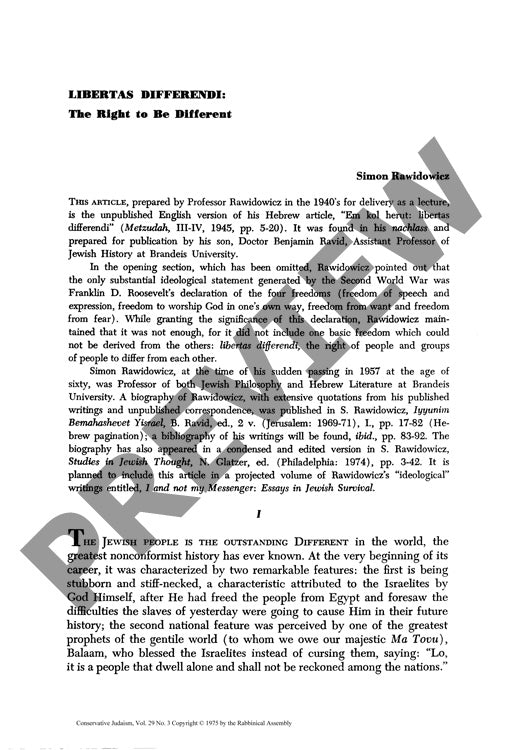Libertas Differendi the Right to Be Diff
Couldn't load pickup availability
In the aftermath of World War II, as nations grappled with defining fundamental human freedoms, a critical right remained unaddressed: libertas differendi - the right to be different. Drawing on Jewish historical experience from ancient times through the Holocaust, Rawidowicz challenges Roosevelt's Four Freedoms framework by demonstrating how the persecution of "different" peoples has persisted precisely due to the absence of protected cultural distinctiveness. Through analysis of Jewish apologetic literature, emancipation debates, and modern anti-Semitic policies, he reveals how traditional assimilationist approaches and defensive strategies that minimize difference have fundamentally misdiagnosed both problem and solution. The research combines historical documentation with philosophical argumentation to demonstrate that sustainable peace requires simultaneously embracing human unity while protecting group differences from majority pressures. Against Hitler's "unconditional annihilation," Rawidowicz proposes a Jewish response of "unconditional survival" that proudly maintains distinctiveness rather than apologizing for it. His findings indicate that without enshrining libertas differendi in international law and national constitutions, other freedoms remain hollow - making this right essential for genuine human progress in a post-war world.

More Information
-
Physical Description
-
Publication Information
Published 1975
ISBN
-
Publication Credits
Simon Rawidowicz

